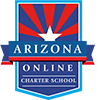“Somewhere, something incredible is waiting to be known.” – Carl Sagan, astronomer and writer
Science can be both a favorite and feared class. The hands-on nature of experimentation and wonder created through discovery of the world can mesmerize and fascinate students. By the same token, the specialized vocabulary and associated concepts can trip students up and alienate the curiosity the course and subjects covered can inspire.
Scientific Vocabulary Words
Here are some resources for science vocabulary we located online:
6th-8th Grade Common Science Prefix/Root/Suffix Vocabulary
A noted in an article from Reading Rockets, vocabulary is vital to reading success. Reading skills and comprehension affect academic performance across the curriculum.
User-Friendly Resource
A stand-out vocabulary resource is Vocabulary.com. This site not only offers user-friendly definitions with varied and relatable examples, it also has a vast collection of lists on any topic imaginable. Search by theme (e.g., water cycle, astronomy), by book title, theme (e.g., Gothic literature or John Nash Tribute List), subjects, or even just check out their collection of lists “Just for Fun” (e.g., 15 Words Whose Pronunciation has Changed Over Time). The site is free and allows users to complete activities for words lists, including practice questions and a spelling bee so users can test their spelling as well as their word mastery. They even sponsor a vocabulary bowl for schools throughout the U.S., and last year nearly half a million students participated.
Encouraging Science Success
“Today, more than ever before, science holds the key to our survival as a planet and our security and prosperity as a nation.” – President Barrack Obama
With the growing focus and integration of STEM (science, technology, engineering, and math) curriculum, help your child achieve in school and science with these tips:
- Talk often about how they feel about school: their classroom, teacher, classmates, and what they do and do not like. Also, discuss what they are learning in class, this can help them think through the day’s lessons as well as help identify the topics that they don’t feel confident about.
- Encourage your child to ask questions in class—asking for clarification can be the key to getting the explanation that will help the information click for your student.
- Support scientific learning at home through fun family experiments or reading that reinforces the science curriculum at school. Below are a few online resources for kids:
- OLogy: A science website for kids from the American History Museum.
- Science Buddies: A collection of project ideas and guides to help students build literacy in science and technology.
- Scholastic: This articles showcases 40 online, science experiments.


